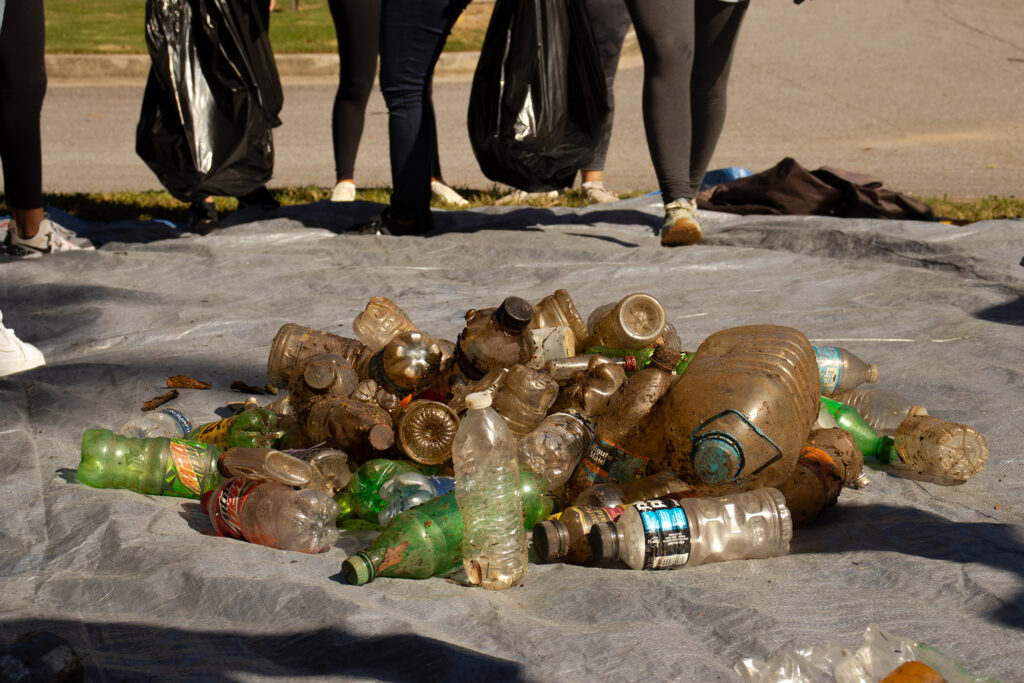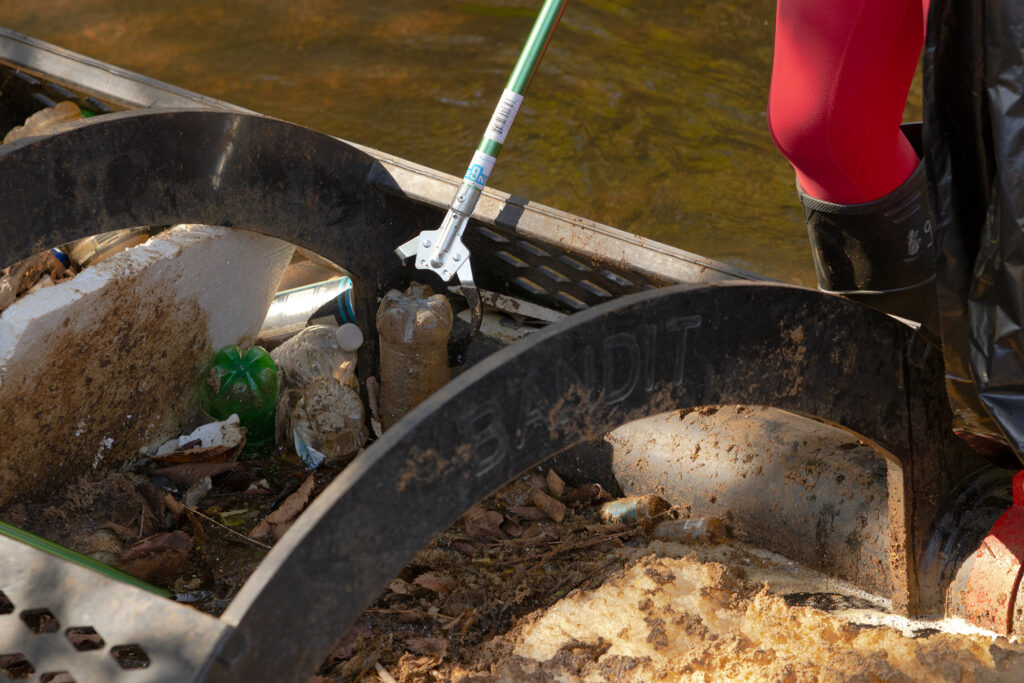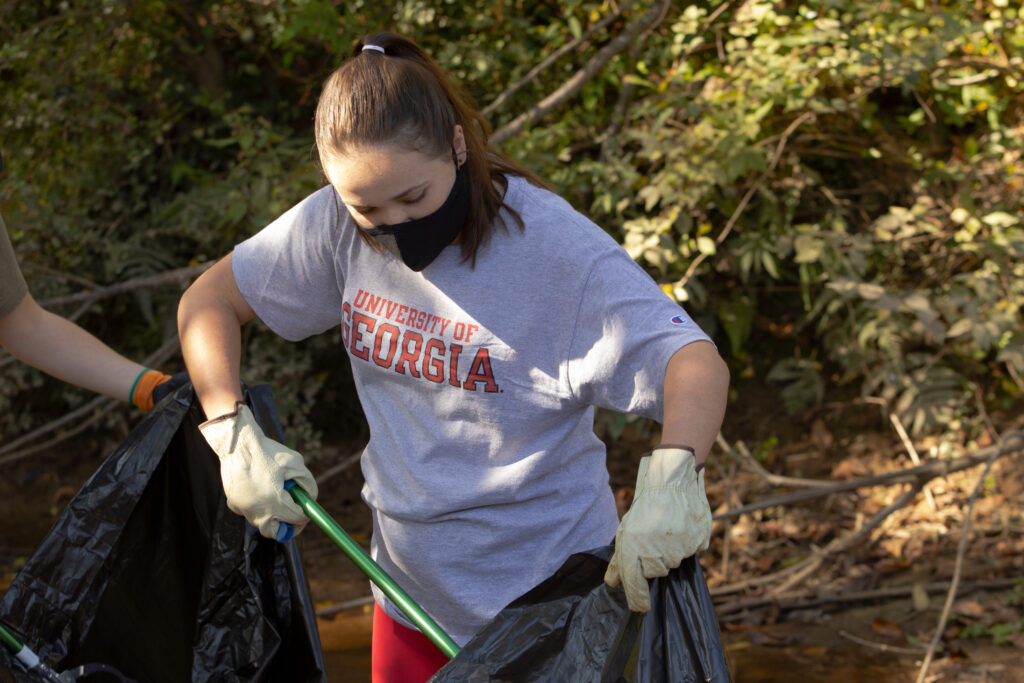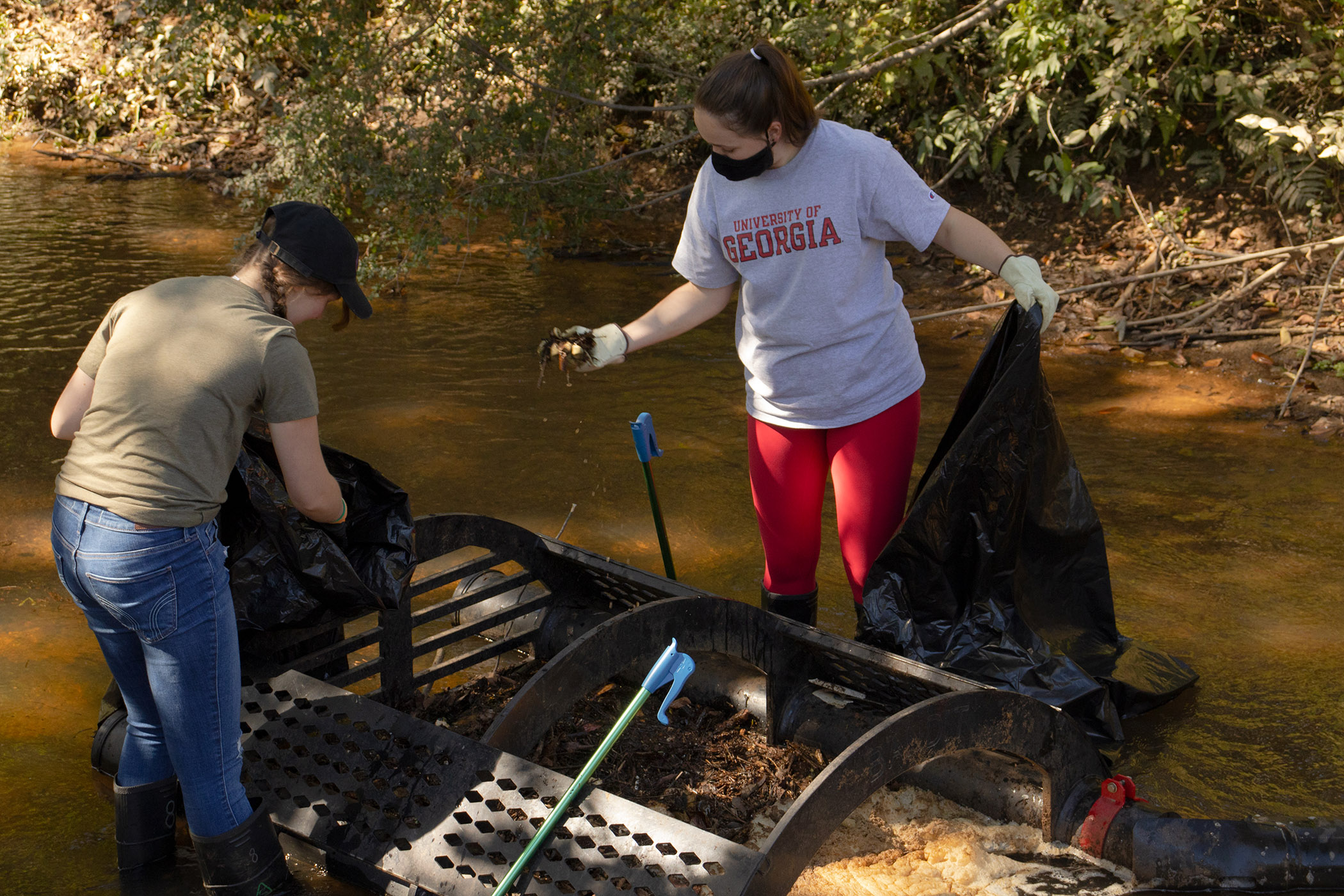University of Georgia alumni are using their passion for sustainability to reduce plastic pollution in Athens — and inspiring current students to do the same.
Last February, UGA alumnus Gary Hopkins, founder and president of Storm Water Systems, partnered with Athens-Clarke County and UGA’s Office of Sustainability to install a device known as a “trash trap” in Trail Creek. The trap captures litter that falls into the creek, which prevents it from reaching larger bodies of water like the Atlantic Ocean. To date, the Trail Creek trap has caught over 100 pounds of litter.

“When I was a little kid, there was no internet, there were no video games — we played in the creeks,” said Hopkins. “When I see what we’re doing to our rivers and creeks now with trash and other pollutants, it inspired us to get on board and do something to make a difference.”
Partnering to find solutions to the trash problem
Now, students from all academic backgrounds are partnering with UGA’s New Materials Institute and UGA’s Office of Sustainability to take this solution one step further. This month, students in professor Peggy Brickman’s Honors biology class started to work with the trash trap as a part of their plastic pollution module.
“Engaging with real-life solutions helps you care about what you’re learning, and when you care about something, you are more likely to remember it,” Brickman said.

Last week, students in the class emptied two months’ worth of litter from the trap, removing 37.3 pounds of trash and 717 items from the creek. They then documented these numbers, along with the different types of items found in the creek. Students concluded that plastic was the most common type of litter, as they found over 150 plastic containers.
“I think this will make us more aware of what we do with the waste that we have. Just looking at the pile, you can see that there are so many plastic bottles. I think a major thing I’ll do after this is cut back on my use of plastic bottles,” said Dana Theoc, a freshman in Brickman’s class.
Using the data to look at the bigger picture
But their work won’t stop there. UGA’s New Materials Institute will use the data they collected to identify which types of trash are more likely to end up in Athens waterways, and then develop community solutions that will reduce consumption and improper disposal of those materials.
The students’ data was also entered into the Debris Tracker App — a citizen science app that collects information on where and what types of litter are polluting a community. The app, created by College of Engineering professors Jenna Jambeck and Kyle Johnsen, empowers ordinary people to contribute to a public database that helps policymakers, scientists, community activists and educators develop well-informed waste-reduction solutions.

“These students get to be a part of a bigger picture. They are doing something that makes a difference, but they are also seeing why science matters,” Brickman said. “A lot of times, students want to make a difference, but they just need someone to encourage them.”
Brickman reaches out to UGA’s Office of Sustainability each semester to see if there are any sustainability projects they need help with. This ensures her students engage with projects that are meaningful to their community and themselves.
“Working with the trash trap really shows how much our individual actions pile up and how much these actions can contribute to these major world issues,” said Theoc. “You may think that not putting one plastic bottle in the bin is not a big deal, but when you see how it piles up into 50 then 100 in just one small creek, then you really start to think about how your little actions do have an effect.”
Brickman’s class is a general education requirement, and she knows that not all her students will work in the science field. That’s why she prioritizes projects with real-life applications that are relevant for all students, no matter what career they go into.
“I want students to know why what they are learning is relevant. That this is more than an academic requirement. It is lifelong knowledge,” said Brickman.


